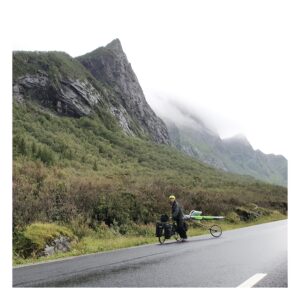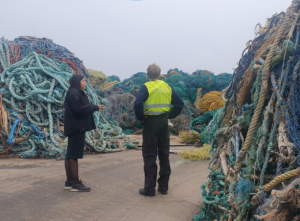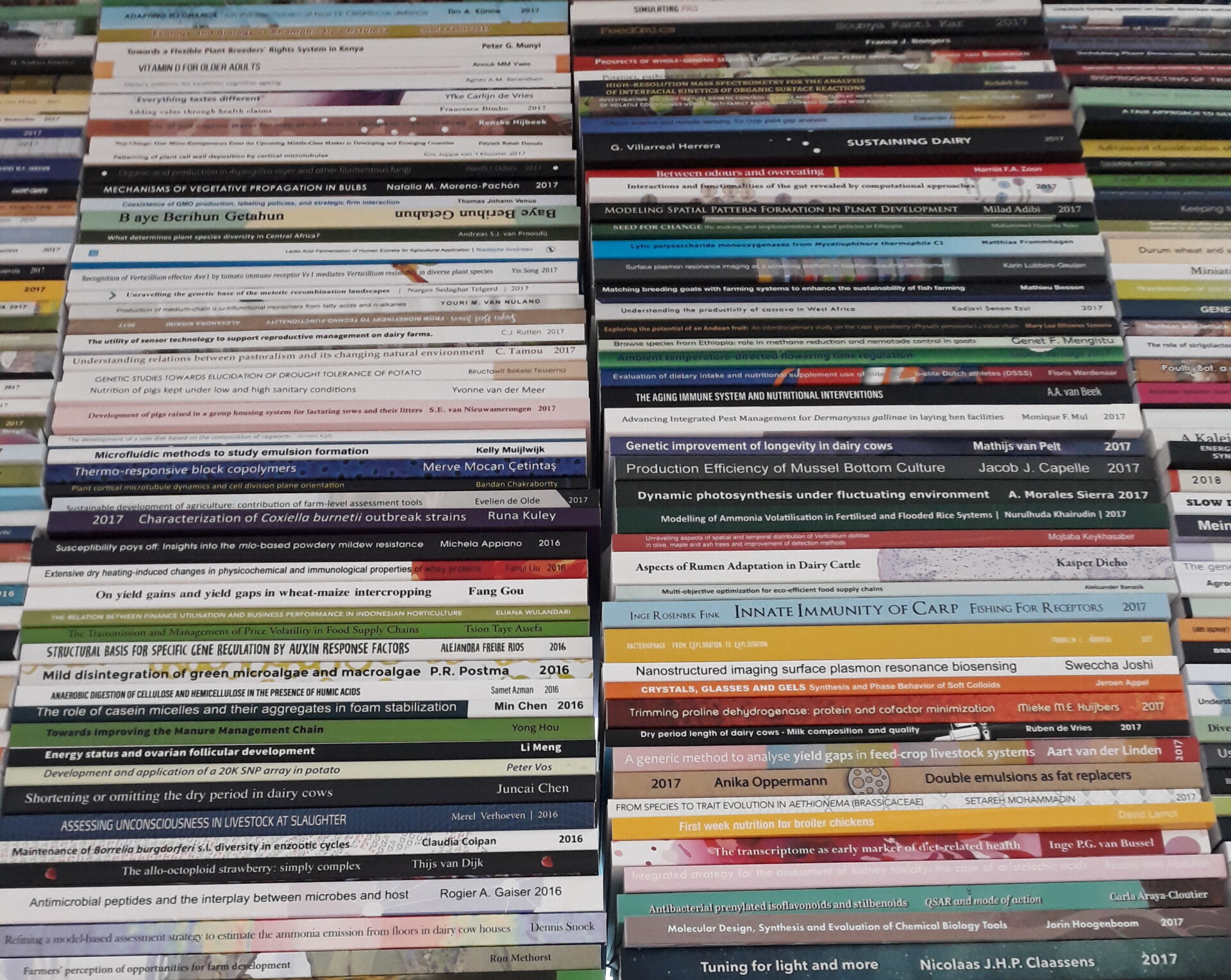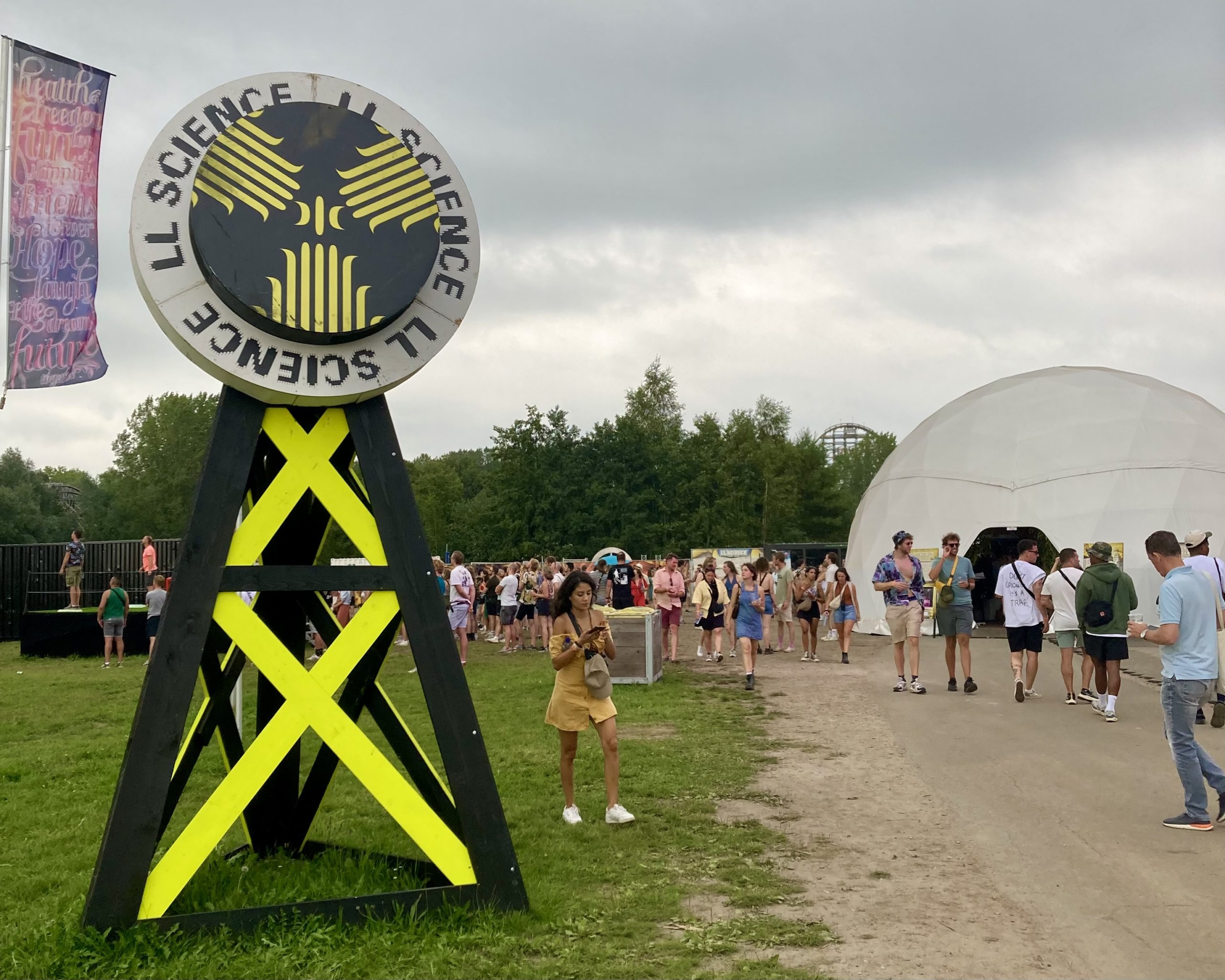Ex-student of Forest and Nature Conservation Robin Aanstoot commenced his mega cycling trip in mid-July. He aims to cycle from Norway to Portugal in six months. He is back in the Netherlands after the first four thousand kilometres.
Aanstoot travels along the coastline as much as he can. Not just because of his love for surfing – he designed a special cart that enables him to take his surfboard with him – but because he aims to learn more about plastic waste as he travels. He planned to collect a garbage bag full of plastic waste each day and visit organisations involved in the recycling of plastic and waste management. Ultimately, this is to lead to the production of a documentary.
I underestimated the inclines and declines. Not one single piece of Norway is flat.

But, that point has not been reached yet. Aanstoot is currently about halfway along his journey. In Germany, he travelled by train for part of the route. ‘My tent was leaking, and there were many rainy and stormy days ahead. Roughing it isn’t a problem, but this was a sure-fire recipe for getting sick.’ Thus: A short break in the Netherlands to search for a better tent.
The interviews along the route provided much needed mental energy. ‘I had so many great meetings! The most impressive was in Denmark, with a company that recycles fishing nets. A large portion of the waste in the sea and on the beaches originates from fishing nets. This business transforms it into chairs, phone covers, credit cards etc. Fishnets were stacked as high as buildings next to the factory for 200 to 300 metres—a surreal fishnet landscape. It is great to see something is being done with them, but seeing all that waste in one place was confronting. Fishers pay to have their broken nets removed from the coast. Why this is not subsidised beats me, it would prevent a lot of waste.’

The first half of the trip wasn’t always easy, Aanstoot says. ‘In Norway in particular. I was a little overzealous with the surf cart. Cycling through the mountains there was killing. I underestimated the inclines and declines. Not one single bit of Norway is flat.’ Moreover, the weather was an issue. ‘In Norway, it rained eighty per cent of the time. In Denmark, I cycled against the wind the entire time. I haven’t really been able to surf, except maybe three times. The conditions were difficult but physically manageable.
Fishnets were stacked as high as buildings next to the factory for 200 to 300 metres. It is great to see something is being done with them, but seeing all that waste in one place was confronting.
This weekend, Aanstoot is to continue his journey. Step one is to travel to the Spanish border along the coast of Belgium and France. A 1900 kilometre trip. By that time, the surfboard will see more action. And, if all goes according to plan, he should reach his final destination Portugal before the end of the year. By then, Aanstoot will not only have collected a monumental amount of waste, but he will also have learned plenty about European initiatives concerning recycling. ‘I already have a bunch of material for the documentary. It will be a combination of interviews and shots taken along the route. I plan to edit the material when I return at the start of next year while I search for a job.’
Want to know more about Aanstoot’s adventures? Follow him on Instagram.

 Cycling on flat ground in the Netherlands. Photo Robin Aanstoot
Cycling on flat ground in the Netherlands. Photo Robin Aanstoot 
